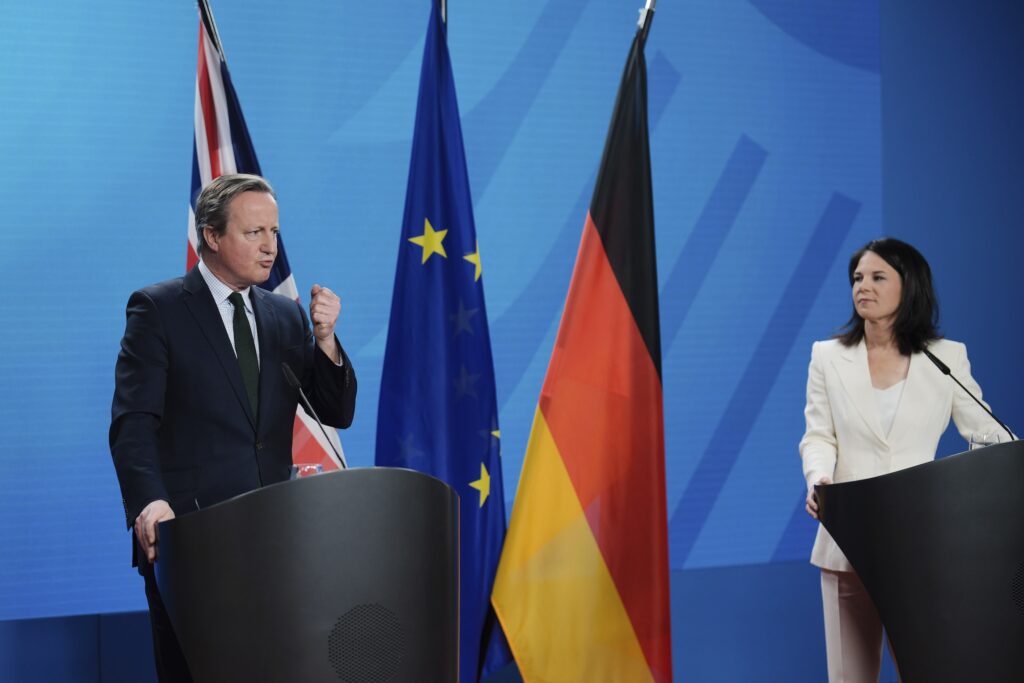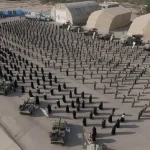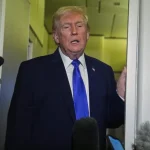
German Foreign Minister Annalena Baerbock accused Western leaders hesitant to increase military aid to Ukraine of “neglecting their duties,” a broadside that appeared aimed at none other than German Chancellor Olaf Scholz.
“Those who do not realize that we have to mobilize all means at our disposal in order to allow Ukraine to defend itself will be neglecting their duties,” Baerbock told reporters Thursday, per a Sky News interpreter. “In concrete terms, what is needed is more ammunition, more air defense, more long-range weapons, so as to allow Ukraine to defend itself and to ensure that it survives.”
Her reference to “long-range weapons” underscored the tension between Baerbock and Scholz, who hail from different German political parties but formed a government after a power-sharing agreement they struck in November 2021. Scholz has been outspoken in his refusal to send long-range Taurus missiles to Ukraine on the grounds that it would be too risky, even though France and the United Kingdom have provided analogous weapons and urged Berlin to do the same — a message that Baerbock’s British counterpart reiterated alongside her.
“We are playing our part, but we both know we have to ask ourselves and all our allies. What more can we do?” British Foreign Secretary David Cameron said. “To all those in Germany and beyond … who want to see an end to this conflict, who want to see a peaceful settlement, who want to see peace on our continent — I absolutely agree that you get peace through strength. You get by demonstrating that Putin cannot win.”

Scholz has refused to send Taurus missiles to Ukraine, extending a pattern of hesitating to approve heavy weaponry deliveries on the theory that the shipments might provoke some retaliation from Russia. Yet his history of reversing course under pressure — last year, for instance, he authorized the provision of German-made Leopard tanks to Ukraine after months of refusal — has drawn scorn, even as Germany’s support for Ukraine gradually rose to new heights.
“What is being done in the way of target control and accompanying target control on the part of the British and the French can’t be done in Germany,” Scholz said in late February. “German soldiers must at no point and in no place be linked to targets this [Taurus] system reaches.”
That statement sparked a diplomatic flap, as it was perceived as a thinly veiled reference to British forces in Ukraine, which the United Kingdom had acknowledged only in more oblique terms.
“Ukraine’s use of Storm Shadow and its targeting processes are the business of the Armed Forces of Ukraine,” a U.K. government spokesperson said in response. “We have previously been clear a small number of personnel are in country to provide security for our diplomatic presence and to support the Armed Forces of Ukraine, including through medical training.”
The controversy worsened when Russia’s state media published an intercepted phone call between German military officers who had discussed the role of the British forces. They acknowledged that Ukraine could use Germany’s Taurus missiles to destroy the Kerch Strait bridge that Russian President Vladimir Putin built to link the annexed Ukrainian peninsula to Russia’s sovereign territory.
“There’s no real reason to say we can’t do it; it just depends on the political red lines,” German Air Force chief Ingo Gerhartz, per the Times, was caught saying.
As Ukrainian forces struggle amid a lapse in U.S. aid, some European leaders have advocated more forthright support for Ukraine.
“We are surely approaching a moment for Europe in which it will be necessary not to be cowards,” French President Emmanuel Macron said Wednesday. “War is back on our soil [in Europe], that some powers have become unstoppable and are threatening us more every day, attacking us even more, and that we … need the courage that it requires.”
CLICK HERE TO READ MORE FROM THE WASHINGTON EXAMINER
Cameron, the top British diplomat, argued Thursday that Scholz need not fear the delivery of long-range missiles would be considered escalatory in Moscow.
“No, it isn’t,” he said. “As long as we’re not in a situation where a NATO soldier is killing a Russian soldier. We are not causing escalation. We’re allowing Ukraine to defend itself. And I think we need to be really clear about that point.”





